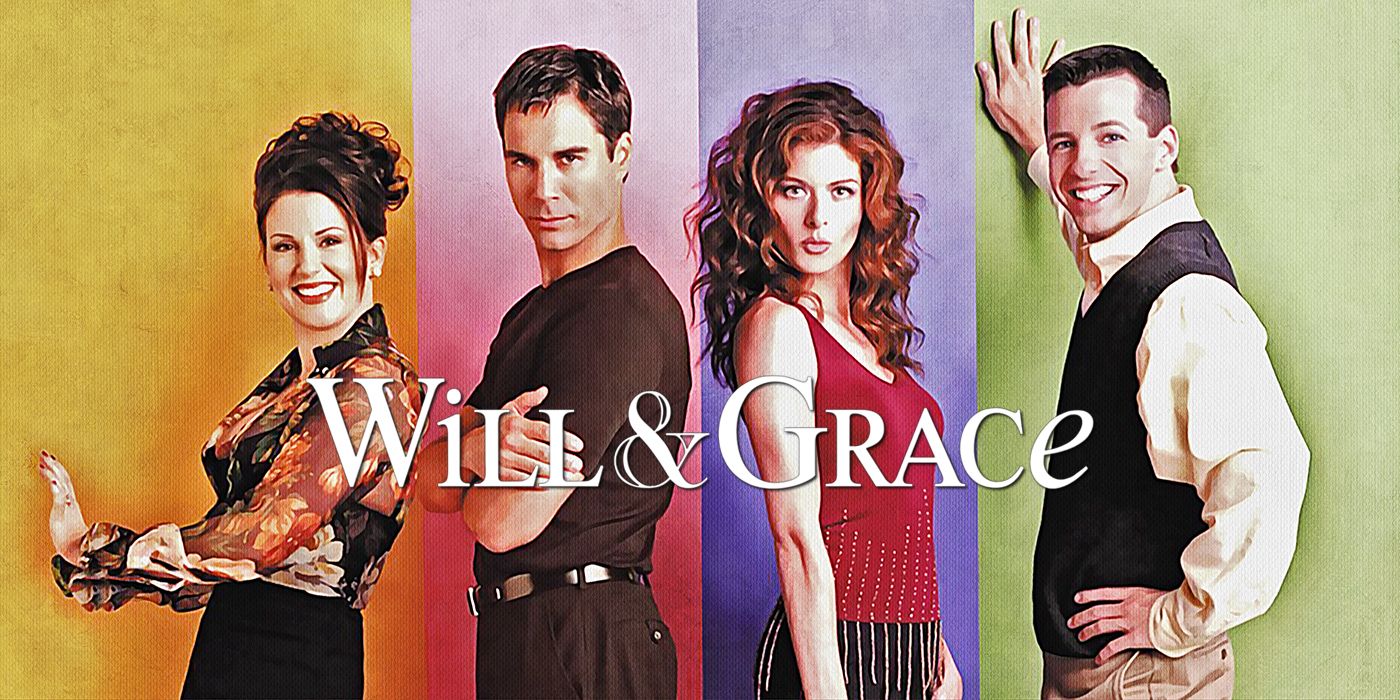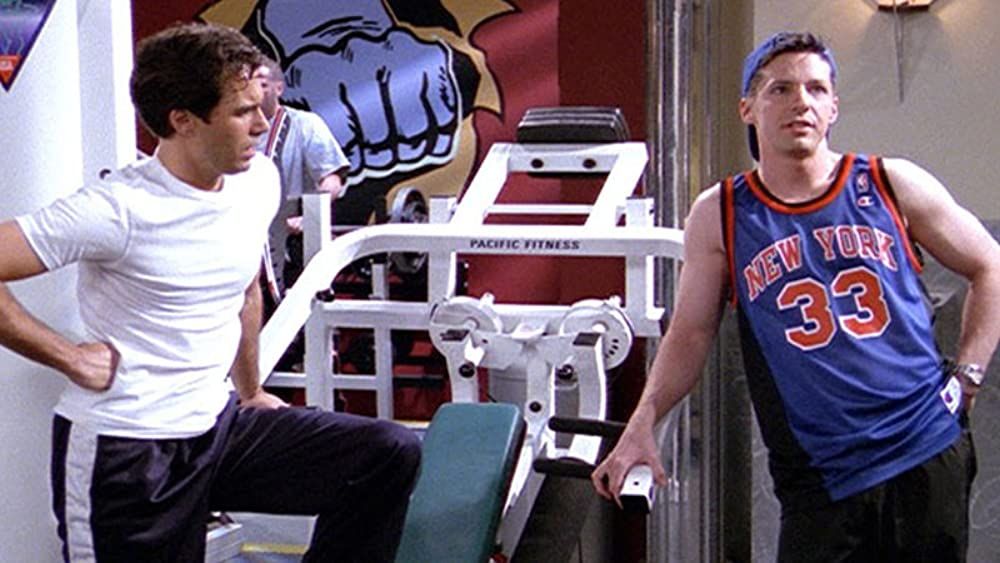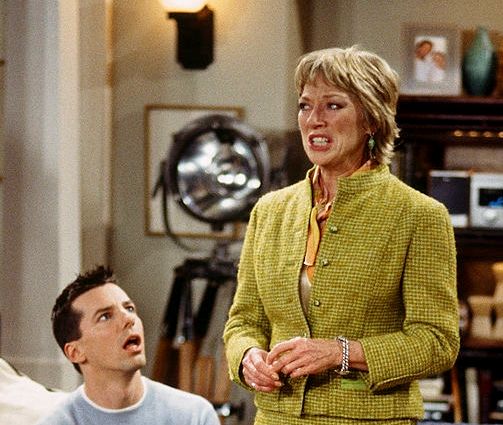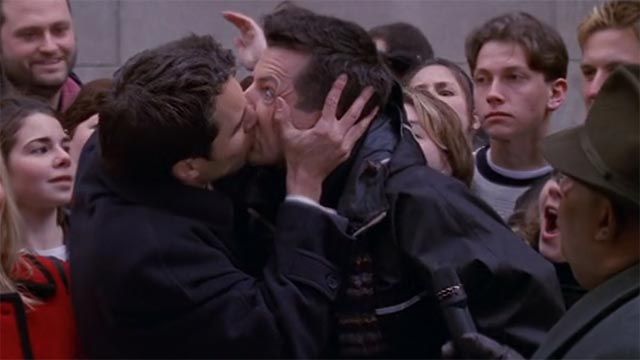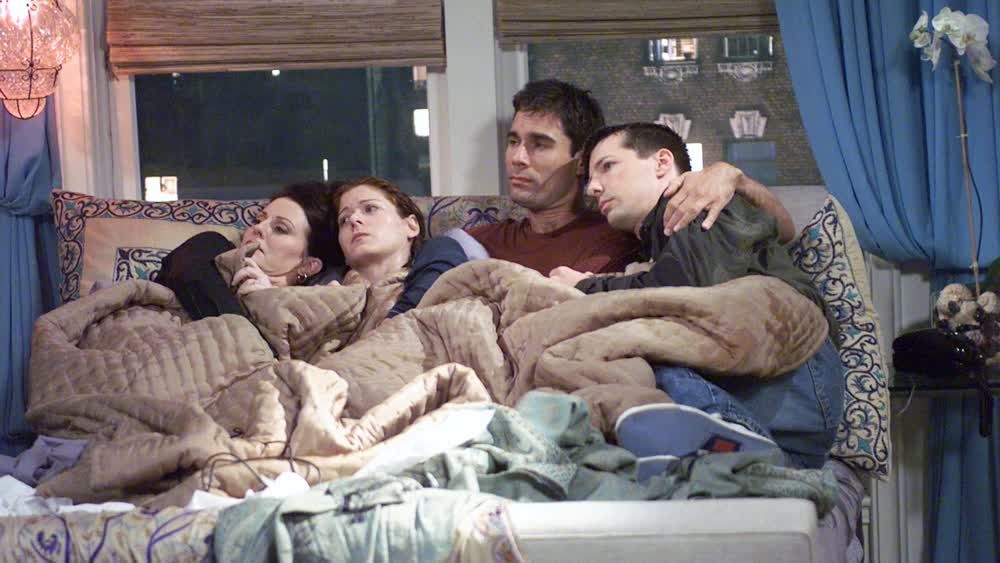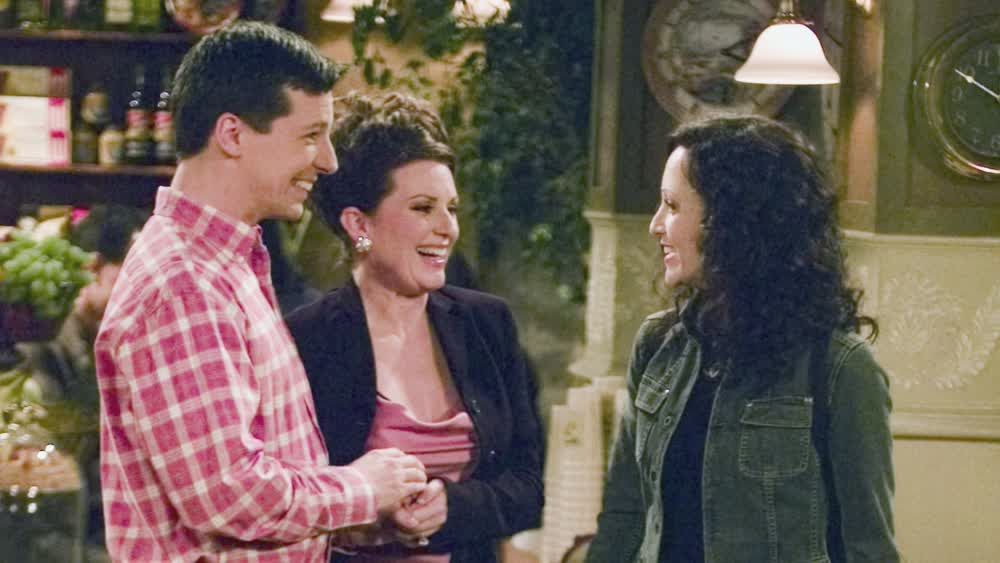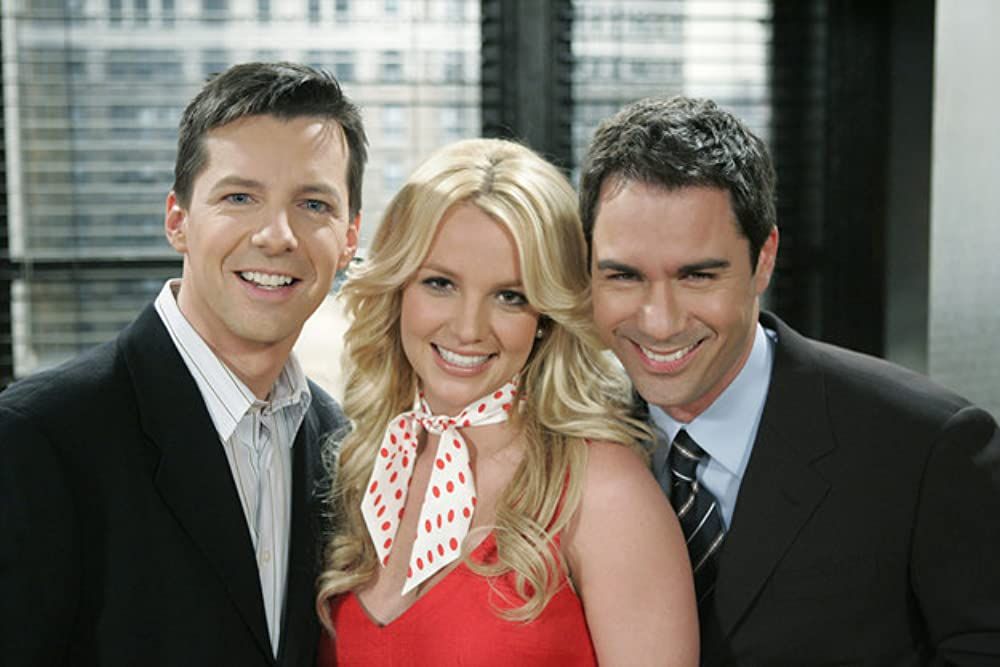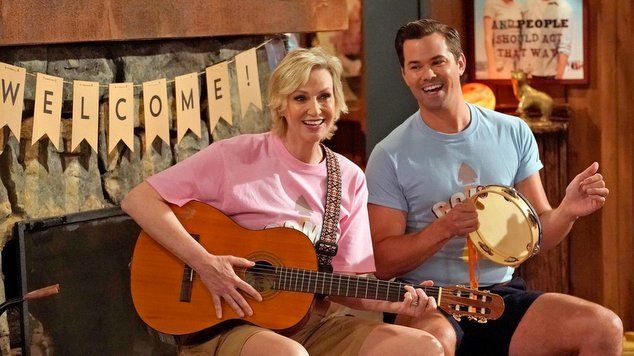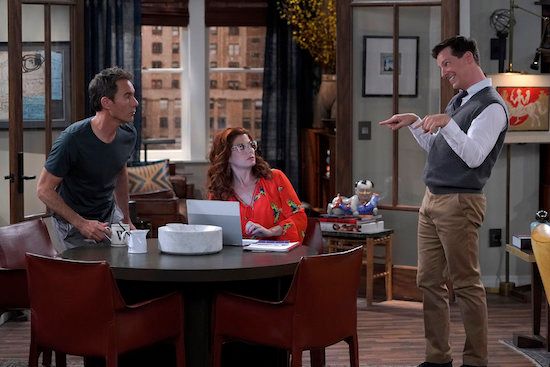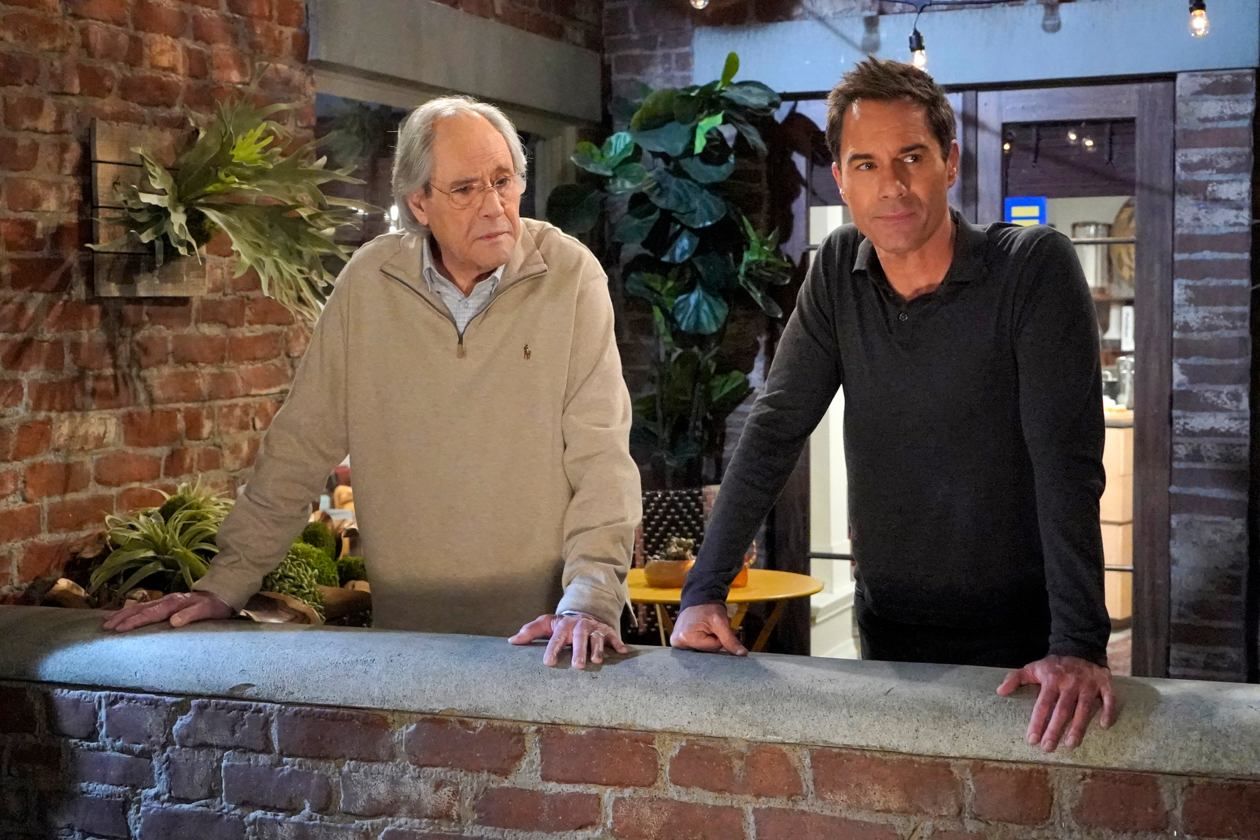Although it’s sometimes easy to forget in a streaming age that’s thankfully become more inclusive, LGBTQ+ representation on television has historically been a rarity, and especially when Will & Grace originally aired on NBC from 1998 to 2006. The critically beloved sitcom that once drew over 20 million viewers a week at its height has long been credited as attempting to change minds and hearts surrounding same-sex relationships and LGBTQ+ people—specifically by current U.S. President Joe Biden—despite airing in an era that wouldn’t let two gay men kiss onscreen until its seventh season. In fact, the network was scared to put it on TV at all, given the storm of backlash that Ellen’s coming out episode had generated for ABC just a year prior.
But Will & Grace nevertheless persisted, becoming a staple of NBC’s Must See TV lineup on Thursday nights and receiving a massive 83 Primetime Emmy Award nominations during its original eight season run. While the series has continued to receive criticism for doing little to challenge gay stereotypes as well as failing to use its queer characters to properly subvert the typical American relationship comedy, it was this very conformity that ended up being subversive just by including gay main characters into the traditional sitcom formula. This was especially true in 1998 and even more so during the notoriously homophobic Bush administration, during which Will & Grace aired the majority of its run. The series’ skill in challenging sociopolitical authority remained so popular that, in 2017, NBC revived Will & Grace for an additional three seasons.
As a result of LGBTQ+ representation on television having progressed much further since Will & Grace’s original run, it’s easy to look back at the series and dismiss it for its sometimes dated storylines and one-liners. But the current state of queer representation on TV has Will & Grace to thank, which is why I’ve compiled this list of the ten most essential and empowering episodes from both the original series and revival that are worth remembering and revisiting, or even experiencing for the first time.
“Will Works Out” (Season 1, Episode 19)
The first season of Will & Grace spends a great deal of time establishing Will (Eric McCormack) as the quintessential straight leading man, except that he happens to be gay. As series co-creator David Kohan put it at the time, “The process of self-discovery and the pain most gay men go through is fascinating, but the average American is put off by it.” Thus, as far as Season 1 is concerned, yes, Will is gay, but the implication is that he is much “less” gay than his flamboyant friend Jack (Sean Hayes), whom he enjoys putting down with quips about him being a woman trapped in a man’s body. But just before it starts to get unbearable comes “Will Works Out,” when Will begrudgingly agrees to letting Jack work out at his upscale gym where Will is known to interact with clients or other lawyers. After remarking to Grace (Debra Messing) that sometimes Jack can just be “such a fag,” something Jack overhears, Will is met with a harsh dose of reality from his friend: “I’d rather be a fag than afraid.” Confronted with the fact that he puts on different masks with different people, Will introduces the outrageous Jack to one of his lawyer friends as a sign of solidarity. It doesn’t seem like much in the moment, but it’s something that realistically portrays the deep insecurities that Will, and by extension many gay men, suffer with.
“Homo for the Holidays” (Season 2, Episode 7)
Although it might be hard to believe, Jack McFarland wasn’t always “out” to everyone. In this iconic Thanksgiving episode, Will and Grace become aware that Jack’s mother Judith (Veronica Cartwright) believes her son to be straight and recently out of a heterosexual relationship with Grace. Believing the man who forced him out of the closet to be the biggest hypocrite, Will insists that Jack tell his mother the truth, regurgitating all the things Jack said to him when he was struggling with coming out. But his mother, while not completely shocked at the news, in turn reveals a secret of her own: the man who raised Jack was his stepfather, and she’s not quite sure who his biological father is. Ranked by TV Guide as one of the 100 Greatest Television Episodes of All-Time, “Homo for the Holidays” took one of Will & Grace’s many bold steps and one of the most essential: to declare that being gay is nothing to be ashamed of.
“Acting Out” (Season 2, Episode 14)
It’s the moment girls and gays everywhere have been waiting for: network television’s first gay kiss between two men. Jack demands that Will and Grace watch this legendary moment with him on Along Came You, a fictional NBC sitcom. But like many moments like these, it’s just queerbaiting at its finest as the camera pans away from the gay men kissing and onto the fireplace. (“Get off the flames and follow the flamers!”) Will is not shocked, having accepted the notion that America doesn’t want to see two gay men kissing, but Jack will not tone down his outrage as this censorship implies that the way he lives his life is offensive. After much convincing and guilt-tripping, Jack gets Will to go with him to the NBC offices to speak with the president of the network about censoring the kiss. They don’t exactly get that far, but as Jack attempts to get himself heard as a crowd member on The Today Show, Will grabs hold of the moment to kiss his friend right on the lips for the camera and all of America to see. Watching “Acting Out” in the present day makes clear how ahead of its time the episode was and certainly how brave it was to write and air an episode criticizing the censorship choices of NBC, on NBC. Someone please get me an oral history of this episode immediately.
“Brothers, A Love Story” (Season 3, Episode 14)
When Will starts dating a handsome sportswriter named Matt (Patrick Dempsey), his initial worry is having to fake knowing or caring about anything sports-related. But that pales in comparison to when Matt introduces Will as his brother to his boss. Grace pushes for him to end the relationship, but ever-insecure Will just can’t bring himself to dump someone who has expressed a genuine interest in him—even if that means going back in the closet, apparently. Matt insists it’s just because of the intolerant heterosexist world of sports, but when they run into his boss again at a restaurant and Matt makes homophobic comments, Will just can’t keep the charade going any longer. The scene is impeccably bookended by Jack then entering the restaurant on a date with the boss’s son, reinforcing that, to paraphrase the Mary Tyler Moore theme song, gays are all around.
“Bed, Bath, and Beyond” (Season 4, Episode 7)
Arguably the single best episode of Will & Grace finds Grace’s friends trying to find the best way to help her through her breakup with Nathan (Woody Harrelson). Will has tried everything that’s ever worked to get Grace out of a funk in the past, but to no avail this time. Not even a song and dance routine from Jack or a pep talk that’s really a putdown from Karen (Megan Mullally) will heal this wound as fast as they would like. All Grace wants to do is watch slides of her childhood photo albums to pinpoint “where it all went wrong,” and after tearfully confronting her friends over needing to go back to bed and deal with things the only way she knows how, they join her in bed for a colossal group hug to mourn the wounds they all might’ve healed too quickly. Not only does “Bed, Bath, and Beyond” bring the main cast together to showcase once again their priceless chemistry and comedic timing as an ensemble, it also emphasizes the importance of letting ourselves really feel our feelings sometimes. That and the episode contains the two best quotes of the series: when Will says, “Oh, who am I kidding? I’m gay, I can worry while I’m dancing” and Rosario (Shelley Morrison) telling Karen, “You better watch it, lady, because the next time you take a bath it’ll be rub-a-dub-dub, I drop the blender in the tub.”
“No Sex ‘n’ the City” (Season 6, Episode 19)
We’ve waited nearly six full seasons to see Will have a steady boyfriend, and it seems he might’ve finally found the one in the form of Vince (Bobby Cannavale). But when Grace wrongly advises Will to go against his instincts in the relationship, which she interprets as clingy, needy, and the reason he hasn’t had a long-term partner in years, Will starts acting purposely non-committal around Vince. Thankfully, Will realizes the error in Grace’s ways when they both agree they’re too old for stupid relationship games. Meanwhile, Jack and Karen are upset that three of their favorite shows, Frasier, Friends, and Sex and the City, will soon be going off the air, leaving them nothing to gossip about by the watercooler. Later, they run into Bebe Neuwirth at their coffee shop, who at first informs them they need to move on before realizing she wants to play Lilith forever. In addition to finally giving viewers some meat on the bones of Will’s love life, “No Sex ‘n’ the City” is one of those rare episodes of television that indulges in commenting on itself: when television landmarks go off the air, what happens next? For a network like NBC that would in a few short years mourn the end of its own Must See TV lineup, Will & Grace was already predicting the waves of change in the air.
“Buy, Buy Baby” (Season 8, Episode 18)
In one of the most politically subversive and underrated episodes of the series, Will & Grace took on the homophobic Bush administration when right-wing conservatives take over OutTV, the network home to Jack’s very own talk show, Jack Talk. Giving him a co-host in the form of Amber Louise (special guest star Britney Spears), the show soon transforms into Talk Time USA where any backtalk about the President of the United States makes you a traitor. (In reality, Amber Louise is a lesbian pretending to be ultra-conservative to break into television.) When George Takei is scheduled to appear on the show as a guest, the network asks him to hide his sexuality which forces Will to make Jack take a stand against OutTV’s new owners. The move ultimately costs him his job, but that was obviously for the better. Since Will & Grace’s ratings were dwindling and its eighth (and then final) season almost coming to a close, it would appear that the writers decided to take one last stab at sticking it to the people running the country at that time. “Buy, Buy Baby” received mixed reviews when it first aired, but it has since proved one of the many episodes of Will & Grace that has aged surprisingly well.
“Grandpa Jack” (Season 9, Episode 4)
The Will & Grace revival wasted no time in getting sociopolitical all over again when Jack is revealed to have a grandson, Skip (Jet Jurgensmeyer), through his son Elliot (Michael Angarano). The effeminate Skip is presumed to be gay by his conservative parents and is being sent to a conversion therapy camp, something Jack can just not conceive of his son doing. As a result, he and Will set out to rescue Skip from the camp, during which Jack informs his grandson that he is perfect just the way he is. Considering conversion therapy is still legal throughout much of the world including parts of the United States, “Grandpa Jack” was nothing short of radical. Also reminiscent of the speech Will gives Jack back in “Homo for the Holidays,” we can never forget Andrew Rannells and Jane Lynch’s hilarious guest performances as the conversion camp counselors.
“Who’s Sorry Now?” (Season 10, Episode 4)
Yet another quintessential yet overlooked episode of Will & Grace finds the title characters looking back at their college love letters, a time when Grace stopped speaking to Will because of how much he hurt her by coming out. Much like the original series initially worked overtime at making Will the perfect straight male lead who happens to be gay, it also spent a lot of time painting Grace as a victim in Will’s coming-out story, representing one of the most dated tropes Will & Grace repeatedly employed. But “Who’s Sorry Now?” reveals a forgotten footnote: in a letter Grace never read, Will expressed suicidal thoughts at having come out and seemingly lost everyone close to him. As she apologizes for making his self-discovery all about her own hurt feelings, it marks a turning point not only for the characters’ history but for the series as well, making an effort to overturn something problematic from its own past.
“Bad Blood” (Season 10, Episode 15)
When Grace’s father Martin (Robert Klein) falls ill and is in need of a blood transfusion, he refuses to accept one from Will because of his sexual orientation. Grace and Will’s mother Marilyn (Blythe Danner) are outraged, but Will just doesn’t have the energy to keep fighting and defending himself against the narrow-minded, bigoted outlooks that continue to persist against gay men. He ultimately has a long conversation with Martin about the state of gay men’s health and why his mindset is harmful, during which he apologizes and expresses his love for him. Although it might not seem all that revolutionary, “Bad Blood” exposes a persisting stigma surrounding gay men donating blood, something that is still outlawed in most of North America unless the gay man has been celibate for a year. While the episode doesn’t try to change laws, it does something Will & Grace has always done best: try to change minds and hearts.

